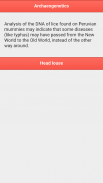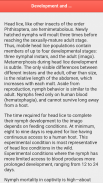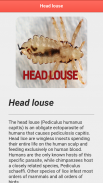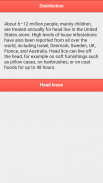










Head Louse

Head Louse介绍
The head louse (Pediculus humanus capitis) is an obligate ectoparasite of humans that causes head lice infestation (pediculosis capitis). Head lice are wingless insects spending their entire lives on the human scalp and feeding exclusively on human blood. Humans are the only known hosts of this specific parasite, while chimpanzees host a closely related species, Pediculus schaeffi. Other species of lice infest most orders of mammals and all orders of birds, as well as other parts of the human body. Lice differ from other hematophagic ectoparasites such as fleas in spending their entire lifecycle on a host. Head lice cannot fly, and their short, stumpy legs render them incapable of jumping, or even walking efficiently on flat surfaces.
头虱(体虱头癣)是人类的一种专体外寄生虫引起头虱(虱病头癣)。头虱是无翅昆虫花费在人的头皮他们的整个生活,并专门对人体血液供给。人是这个特定寄生虫的唯一已知的主机,而黑猩猩举办密切相关的物种,阴虱schaeffi。虱子的其他物种侵扰哺乳动物和鸟类的所有订单的大部分订单,以及人体的其他部位。虱子从其他hematophagic体外寄生虫不同,如在消费的整个生命周期的主机上的跳蚤。头虱不会飞,而其短,缺腿使得它们不能跳跃的,甚至在平坦的表面行走效率。
The head louse (Pediculus humanus capitis) is an obligate ectoparasite of humans that causes head lice infestation (pediculosis capitis). Head lice are wingless insects spending their entire lives on the human scalp and feeding exclusively on human blood. Humans are the only known hosts of this specific parasite, while chimpanzees host a closely related species, Pediculus schaeffi. Other species of lice infest most orders of mammals and all orders of birds, as well as other parts of the human body. Lice differ from other hematophagic ectoparasites such as fleas in spending their entire lifecycle on a host. Head lice cannot fly, and their short, stumpy legs render them incapable of jumping, or even walking efficiently on flat surfaces.
























